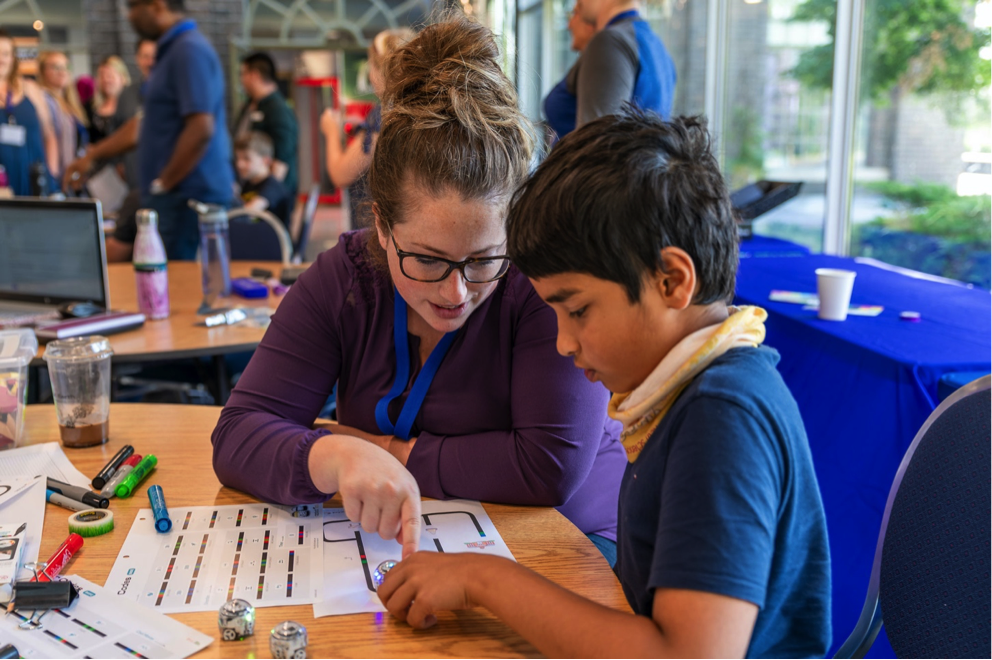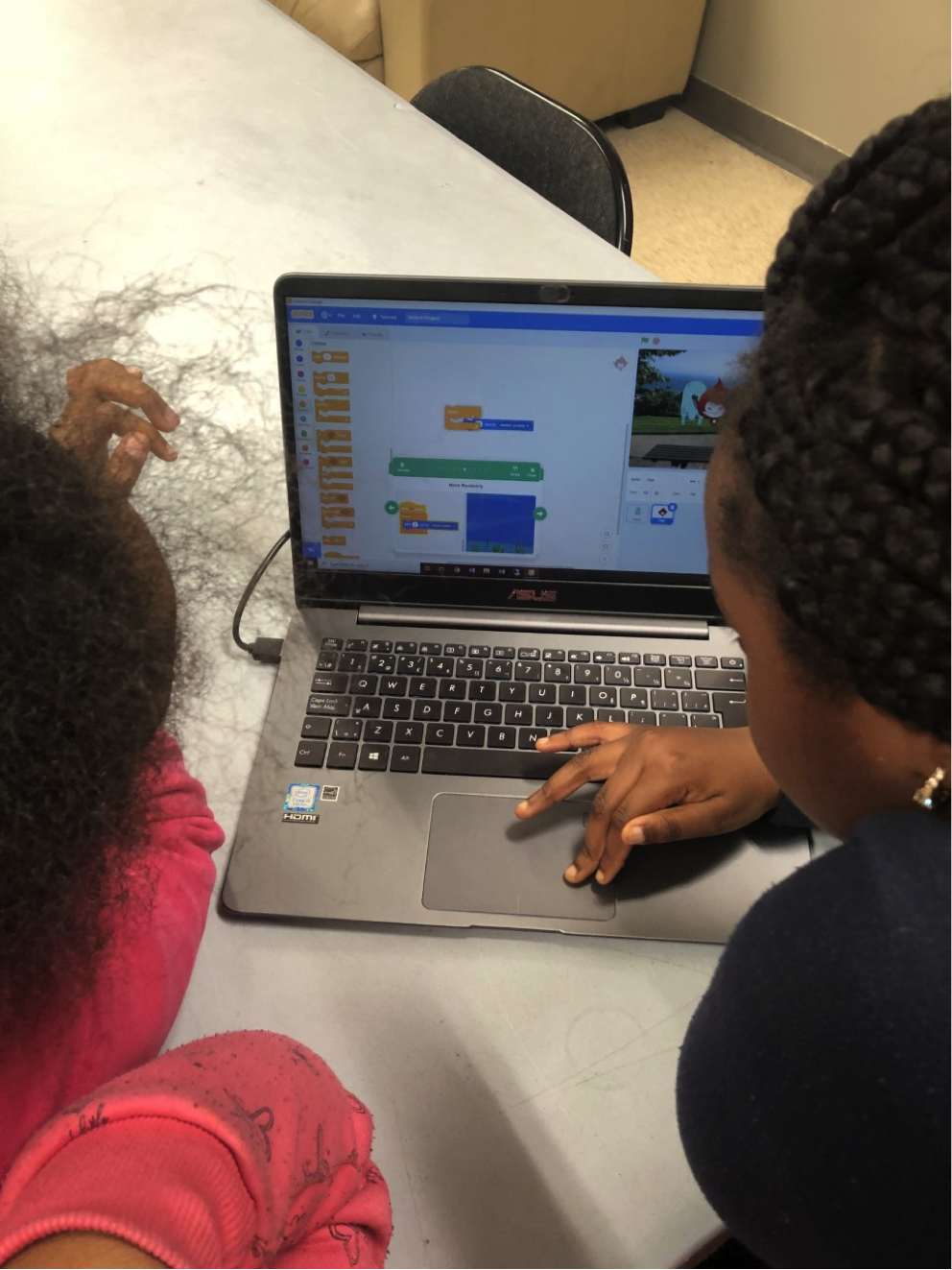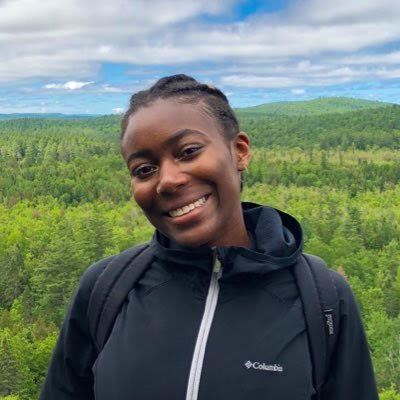Winning the Science Writers and Communicators of Canada People’s Choice Award for Science Online is a significant achievement. Winning the award a second time confirms that Let’s Talk Science has the formula for enduring quality.
But where did their scicomm journey begin? Vanessa Nelson, Vice-President of External Relations at Let’s Talk Science recounts the organisation’s humble inception and shares their plans for their future.
Nearly 30 years ago, President and Founder Bonnie Schmidt recognized that elementary school educators were receptive to support for teaching science and technology and making it engaging for their students. She saw that teachers struggled with garnering and keeping children’s interest in the sciences.
“It can be challenging to engage children and youth in science,” Nelson says. “It requires a little bit more connection and understanding to engage kids. They need to understand and see relevance.”
According to Nelson, Schmidt started working directly in classrooms, volunteering with educators and finding ways to “show kids how exciting STEM could be.”
Since 1991, Let’s Talk Science has grown from two or three volunteers like Schmidt to more than 70 people located across the country. The team now collaborates with more than 50 colleges and universities across Canada. The charitable organization relies on funding from governments, corporations, foundations and individuals to provide resources and programming at no charge.
Their focus? Creating interest in science that lasts so kids stay in the subjects longer … and develop the skills that they need to thrive and succeed.
A key activity for Let’s Talk Science is promoting careers in science.
“Be it from a hairdresser right up to a laboratory researcher: all of those [careers] require some sort of STEM skills and critical thinking,” Nelson says.
Volunteers go into classrooms (now virtually) and, in addition to delivering hands-on and curriculum aligned STEM activities, take the time to tell students about their studies or their working life, how they got there, and what their next steps might be. To further support career exploration, the Let’s Talk Science website has a dedicated career section for children and teachers that showcases unique current and future careers in science.
“If a kid doesn’t know that a job exists, how are they going to think to go into that field?” Nelson says.
“I think every parent and teacher should be exposing kids around them to a range of career resources to give them an idea of what's out there, where a STEM education can take you."

Let’s Talk Science is largely supported by its base of 3,500 volunteers.
Let’s Talk Science is largely supported by its base of 3,500 volunteers.
COVID-19 and a new game plan
COVID-19 has changed the organization’s traditional outreach approach and their typical audience focus. They have transitioned to virtual outreach and online involvement in classrooms, and geared resources towards families.
In some cases, this means adapting content that fits a less formal learning environment.
“We’re here to provide support and learning and engagement for education, no matter where it's taking place,” Nelson says.
In the last nine months, the organization has developed an even greater appreciation of the value of STEM learning for innovation and finding solutions to complex human problems.
“COVID made STEM learning more relevant than ever,” Nelson says. “Every solution or approach to responding to the pandemic, be it medical, engineering, or design, comes through a STEM lens.”

“Not every kid needs to be a scientist, but every kid needs to be able to think critically,” Vanessa Nelson says.
Encouraging a generation of critical thinkers
STEM and critical thinking go hand in hand, and Let’s Talk Science fosters these skills in all of their resources.
“How do you make sure that you have the understanding and the learning (children) need to make decisions and to think critically about topics? Our goal has never been to influence decision-making, but rather provide the scientific literacy that kids need.”
The need for children to learn how to make sound scientific decisions and learn how problem-solve and innovate today and in the future is more important than ever as misinformation online surges.
“Not every kid needs to be a scientist, but every kid needs to be able to think critically,” Nelson says.
Let’s Talk Science aims to arm students with the skills they need to make decisions about climate change, viruses, and other real-world problems. It does not exist to advocate for a particular cause or to take a stance.
Instead of focusing on vaccine denial, they talk about how vaccines are developed and how they work so that youth can understand.
“Then, kids don't need an advocacy position being taken,” Nelson says. “Provided with sound science learning, youth are well equipped to make sound decisions for themselves.”
Building on this approach, in the coming years the organization will increase its focus on climate - not just climate change. What is climate and how does it work? What is its influence on our lives? How is it impacted by our actions?
Let’s Talk Science has an ongoing project that allows classrooms to collect data to monitor the environment in the classroom. This allows the classes to monitor carbon dioxide and oxygen levels, humidity, and temperature and see how their actions affect these variables.
“What happens if you open a window? Do CO2 levels go down? This helps students understand the impact of their behaviours.”
It’s all about relevancy
The Let’s Talk Science team believes it is critical to translate science and research using concepts that children relate to.
“I think there’s a really strong need to make science learning accessible,” Nelson says. “It can become very technical.”
“A chemical formula may not mean a heck of a lot to a kid,” Nelson says. “But if you show them that it's how their Kool-Aid gets made … that's relevancy.”
By: Adenieke Lewis-Gibbs

Adenieke Lewis-Gibbs is a recent journalism and French graduate from Carleton University. She spends her free time reading or getting outside. Her favourite subjects to learn and write about are conservation, sustainability, and trees. Born and raised in Toronto, Adenieke recently packed up and moved to Paris, France to teach English for the school year.
